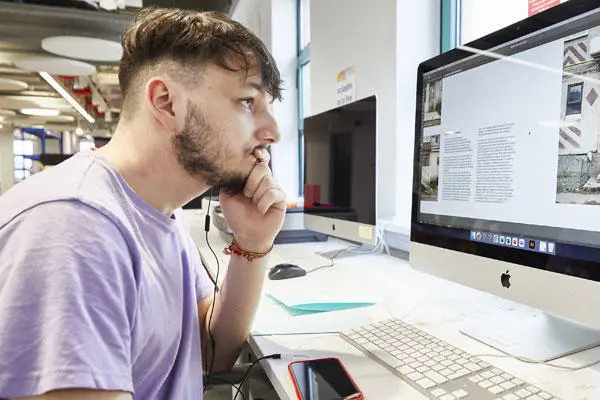
MSc Digital Marketing
This exciting, challenging, practice-orientated course will develop your strategic and creative skills, equipping you for a dynamic career in or related to the rapidly expanding digital marketing sector.
Find out more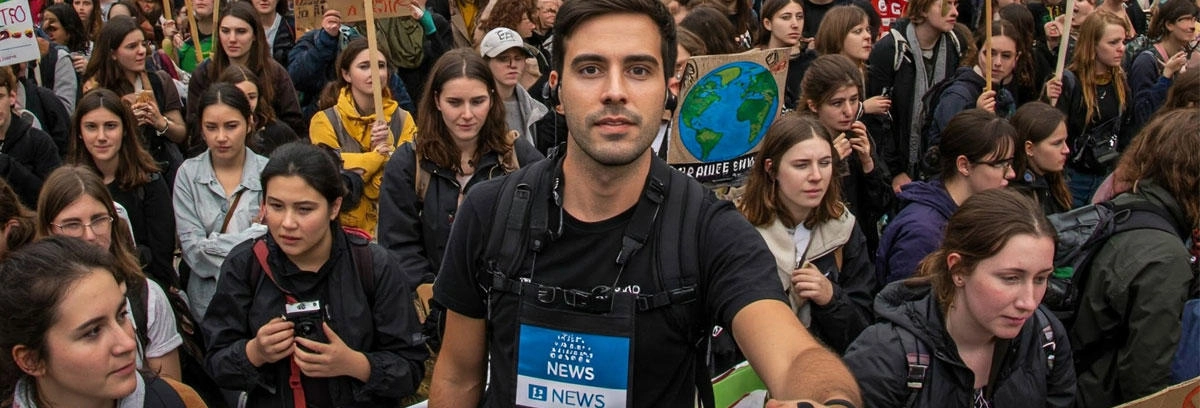
If you're ready to shape the future of media, report with integrity, and make your voice heard in a rapidly evolving landscape, this mobile-first journalism and content creation course is for you.
Contact international admissions
Email: Call:This BA (Hons) Journalism and Content Creation programme is a bold step forward, recognising that the future of media lives right in the palm of your hand. Digital skills have not just been added as an afterthought - the curriculum is mobile-first and social-native from the ground up. Imagine mastering the art of crafting compelling narratives for TikTok, building engaged communities on Instagram around the issues you care about, using the immediacy of platforms like X to share verified information, and creating immersive audio experiences for on-the-go listeners.
This course empowers you to become the trusted voice that cuts through the noise. You'll learn the enduring principles of ethical journalism – accuracy, fairness, and robust fact-checking – and then discover how to apply them with cutting-edge mobile tools and social media strategies. You'll be equipped to report with integrity, social savvy, and mobile mastery as you learn to investigate, verify, and present information in engaging formats designed for a mobile audience, build your brand, and your future by developing the skills to thrive in the creator economy, connect directly with your audience, and even launch your own media ventures.
At Solent, you'll uncover truth in the digital age by mastering the techniques to identify and debunk disinformation, becoming a vital source of reliable information online and harness the power of the mobile in your hand engaging online communities and leveraging the platforms you love for impactful change.
Journalism isn't just about newspapers and politics. Whether your passion lies in gaming, fashion, music, environmental issues, social justice, or anything in between, this course will give you the skills to turn that passion into compelling content and a fulfilling career.
This programme is for the digitally native, the critically-minded, the naturally nosey and those who are ready to use their lived experience of social media to make a real impact. If you're driven by a desire to share truth, challenge misinformation, and create media that resonates with your generation, this is your chance.
Ideally, you'll come to this course with a foundation in good communication – whether written or spoken – and a genuine curiosity about the world and how media shapes it. An interest in current affairs, digital culture, and emerging technologies is beneficial. While prior experience in content creation or journalism (like a blog, social media channel, or school newspaper) is great, what matters most is your enthusiasm, creativity, willingness to learn new technical skills, and your drive to investigate, inform, and engage audiences ethically.
You'll graduate ready to be a leading voice in mobile journalism and digital storytelling, be able to create impactful content that informs and engages online communities, be a force for truth and positive change in a complex world, and be ready to redefine journalism for the mobile age.
The team delivering this course is a mix of practising, award-winning journalists, content creators and personal brand experts and a roster of guest lecturers immersed in the evolving world of social first journalism. The teaching team are responsible for delivering courses at Solent with excellent student satisfaction, graduate outcome and progression data, and already have an established network of graduates in the industry ready to support the next generation of journalists.
The University cannot guarantee any particular members of staff will teach specific aspects of the course in the future, but will endeavour to ensure the teaching team maintains their balance of experience and qualifications.
Our vibrant campus brings state-of-the-art facilities to enhance your learning and elevate your student experience. Our award-winning teaching building, The Spark is centred around students and offers a stimulating study environment with flexible learning spaces.
Away from studying, why not try out the gyms, fitness studios and sports halls in our £28 million Sports Complex, or watch a blockbuster film at our student-run cinema with Dolby Atmos audio.
Broaden your horizons by adding an international dimension to your CV – essential to achieving success in today’s fast-changing, global environment.
Studying, working or volunteering in another country could be the experience of a lifetime. Enhance your degree by developing important global skills such as knowledge of other countries, language skills, intercultural awareness, adaptability and confidence.
For more information, please email international.mobility@solent.ac.uk.
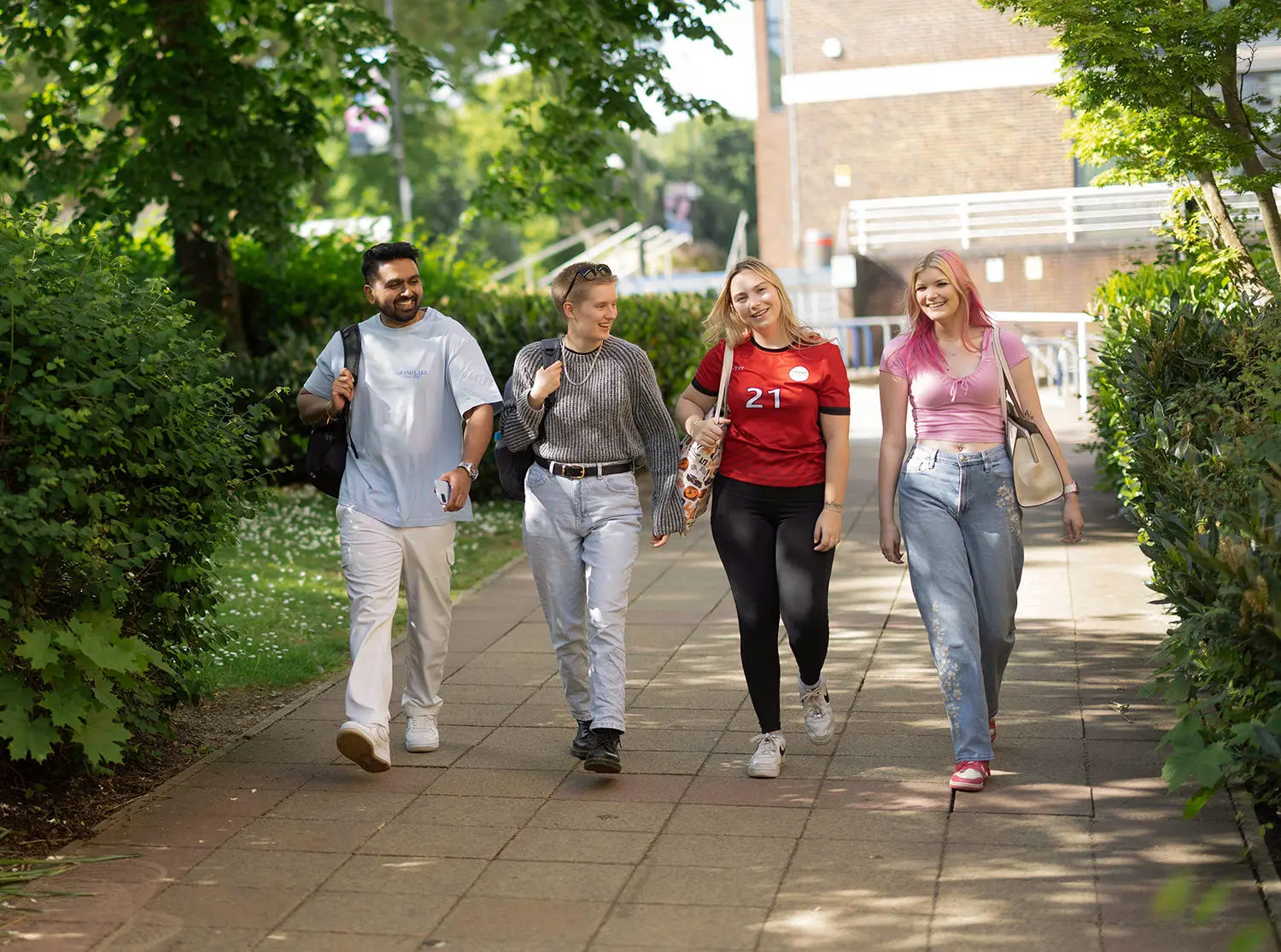
This module equips you with the foundational knowledge and practical skills required for proficient visual communication and content creation within journalism. Through learning about graphic design principles, data visualisation techniques, and image editing skills, you'll be able to produce impactful and ethical visual content that complements your other journalistic narratives.
This module provides the foundational knowledge and practical expertise required for modern, social-first journalism. You'll integrate core journalistic practices - including news identification, audience analysis, and navigating legal and ethical considerations - with the technical proficiency needed for mobile video production.
Becoming a YouTuber requires much more than the right equipment or a great editor - you need to become a master of many different practical skills, theoretical knowledge and a distinctive mindset to navigate this dynamic industry. This module aims to bring all the video production and analytical skills needed to optimise this platform and other video social platforms to leverage them successfully.
In this module, you'll develop your ability to function as a media or marketing consultant by applying journalistic and or content creation principles to real-world commercial and community challenges. You'll evaluate a local client’s business or organisational need and existing media performance, using this analysis to design and propose an innovative, platform-native content strategy.
In this module you'll learn how to create engaging, informative and inclusive news reports for broadcast and social media outputs. The importance of research, planning, interviewing, storytelling, scriptwriting and editing will be blended with a need for balance, objectivity and creativity.
This module brings storytelling together with audience and platform understanding to enable you to build your discipline-specific knowledge and practice by devising your own original audio or audio-visual series for a specific platform of your choosing.
This module is a deep-dive into the dynamics of the rapidly expanding creator economy. You'll investigate the strategic business models and legal frameworks surrounding successful news content creators, and will analyse the current independent creator news landscape and future opportunities, culminating in the practical planning and conceptual launch of your own content creator brand.
Please note: Not all optional modules are guaranteed to run each year.
This module provides the necessary skills to analyse, visualise, and communicate information - particularly data - clearly and accurately. It also addresses ethical considerations, ensuring you understand the importance of data accuracy and transparency. By mastering these skills, you'll be equipped to work in a digital world saturated with data.
This module examines the essential role of digital communities and data-informed strategy in contemporary media, communications, and content creation. Groups will take ownership of the social media channels for the course's brand, Carbon, developing targeted, evidence-based campaigns and marketing plans, using real-world data to track, iterate, and refine their approach.
This module enables you to critically evaluate the current trajectory of technological innovation within news journalism and media, including the legal and ethical implications of advanced technologies like AI and algorithms, preparing you to lead change by generating and presenting informed, ethical, and creative solutions for the evolving global media environment.
As a mobile broadcast journalist, your newsgathering, editorial decision-making and production abilities must be finely honed to deliver factual, compelling outputs quickly and efficiently, without compromising on quality. This module provides an in-depth understanding of how TV and radio broadcasts are crafted, combining technical expertise with editorial judgment.
This module will enable you to synthesise future trend knowledge with critical market evaluation to identify opportunities for innovation or entrepreneurship within a given sector. The module emphasises critical thinking, innovation, professional practice, and the ability to communicate ideas effectively across media formats.
Please note: Not all optional modules are guaranteed to run each year.
The module enables you to master the strategic and collaborative process of event management by designing and executing an engaging live (IRL) event. You'll learn to critically reflect on the four stages of event planning and the complexity of event roles, providing an in-depth analysis of the future viability of IRL events in their professional sector.
This practice-led module is the culminating experience to prepare you for transition into the creative industries. By bridging academic learning with industry realities, you'll create a specialised, industry-ready portfolio of work that showcases advanced technical execution, ethical responsibility, and a critical understanding of future employment or business launch potential.
Contact international admissions
Email: Call:As part of this course, you will study one module at a time, giving you the chance to build a deeper understanding and see the results of your hard work more quickly. With regular assessments and feedback, rather than exams all at once, you’ll also benefit from improved focus, and a more manageable workload.
Learn more about block teaching
The student achievement team are on hand to help you succeed during your studies at Solent. They aim to contact you at key times during your time here with personalised information, advice and guidance, by email or phone.
The disability advice team provides information, advice and guidance for disabled students.
All students can access Succeed@Solent, Solent's online guide to getting better grades. It offers extensive, practical information and advice on topics such as academic writing, research and presentations.
In an era saturated with information, much of it unverified or deliberately misleading, the fundamental role of journalism has become more critical than ever. We live in a world where news is no longer confined to traditional broadcasts or print editions; it explodes across social media platforms, shaping public discourse in real time. This presents both immense challenges and unparalleled opportunities for those who are passionate about truth and accountability.
A career in journalism, particularly one attuned to the dynamics of social media, offers you the chance to be part of the solution. As a journalist trained in this mobile-first approach, you will possess the crucial skills to cut through the noise, identify and debunk misinformation, and deliver accurate, impactful narratives directly to the audiences who need them. You will learn to verify information with rigour, tell compelling stories that resonate, and engage communities effectively, thereby fostering a more informed and resilient society.
This degree is not just about adapting to the future of media; it is about actively shaping it. By mastering content creation and personal brand building within a journalistic framework, you will be equipped to be entrepreneurial, innovating new ways to inform and connect. You will find yourself highly sought after, not only by established news organisations and publishers who increasingly recognise the power of social-native storytelling, but also by a diverse range of brands that value authentic story-telling and community engagement. This is your opportunity to redefine journalism, becoming an essential voice in the ongoing quest for truth and understanding in our interconnected world.

The Solent Careers team is committed to getting students into great careers.
While you are studying, the team can help you with finding work experience or placements, link you with a mentor, check your CV, or offer one-to-one guidance.
We also have graduate job opportunities just for Solent graduates.

6th
UK uni for sustained employment
Longitudinal Educational Outcomes, 2022
Every student at Solent University will also have the option to study an additional Certificate in Practical Artificial Intelligence qualification alongside their course. Free of charge, the course ensures you'll be prepared for a fantastic and varied career after graduation.

Thinking about studying further than an undergraduate degree? Alumni can get 20% off their postgraduate study.

This exciting, challenging, practice-orientated course will develop your strategic and creative skills, equipping you for a dynamic career in or related to the rapidly expanding digital marketing sector.
Find out more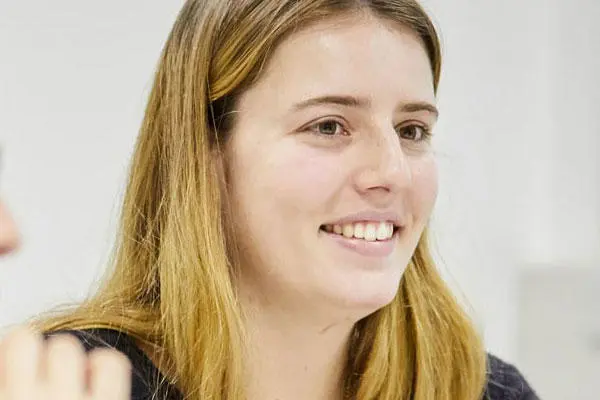
The strategic value of internal communication is increasingly recognised within organisations across all sectors, providing opportunities for practitioners to influence and advise at a senior level and make a tangible difference to organisations.
Find out more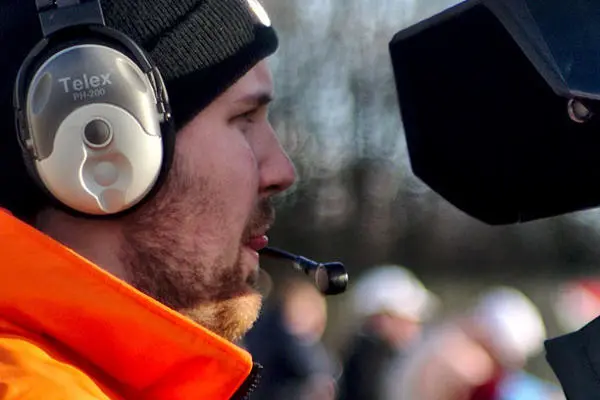
Bring your sports knowledge to radio, the internet or television screens for an exciting career in sports journalism.
Find out more
Do you have an eye for design? Would you like to help influence the future of visual communications? Our MA Visual Communication degree is ideal for creatives keen to refine their practice, working as part of an interdisciplinary group of students.
Find out moreThe tuition fees for the 2026/27 academic year are:
For further information, please visit our tuition fees page.
While most course costs are covered by your tuition fees, some essential resources and optional extras may need to be paid for separately. These additional costs are listed below. For advice on budgeting and managing your money, please contact student.funding@solent.ac.uk.
Solent University offers a range of bursaries and scholarships that provide financial assistance or waive fees for tuition or accommodation. Each bursary or scholarship has specific eligibility criteria. Check out our bursaries and scholarships pages to find out more.
Cost of living support
At Solent, we understand that the cost of living crisis may be of some concern. To help, we've put together some detailed information to show what support is available and how to make your money go further.
Graduation costs
There is no charge to attend graduation, but you will be required to pay for the rental of your academic gown (approximately £45 per graduate, depending on your award). You may also wish to purchase official photography packages, which range in price from £15 to £200+. Graduation is not compulsory, so if you prefer to have your award sent to you, there is no cost. Extra guest tickets will go on sale after results publication and will be sold on a first-come-first-served basis. The cost per ticket is currently £20. Please note, we do not guarantee there will be any extra tickets available to purchase.
Contact international admissions
Email: Call:Please select an option below:
As a general guide, we look for qualifications that are equivalent to the British high school A-levels.
Applicants from outside the UK will be required to attend an interview over Teams or Zoom.
If you are applying from outside the UK, find information about entry requirements, visas and agents for your country here.
For further information about UK, EU and international qualifications, please see our course entry requirements document.
As a general guide, we look for qualifications that are equivalent to the British high school A-levels.
If you are applying from outside the UK, find information about entry requirements, visas and agents for your country here.
For further information about international qualifications, please see our course entry requirements document.
All international applicants need to be aware that the English language requirements to attend Solent University, and the English language requirements to obtain a visa from the Home Office, may be different. This means that if you meet the Solent University language requirement to gain a place on the course, you may still have to meet additional requirements to be granted with a visa by the Home Office.
We strongly advise all applicants to visit the Home Office website which outlines all the requirements for a successful visa application.
Full-time
Any student applying for the first year of a full-time/sandwich undergraduate course must apply through UCAS (University and Colleges Admissions Service). This includes mature, overseas and EU students.
Nearly all schools and colleges offer their students the facility of applying electronically through the UCAS website using 'Apply'; it may also be used by those applying independently in the UK and overseas. This facility and all course information can be found on the UCAS website: www.ucas.com.
Your application should reach UCAS by 14 January if you hope to enter a course the following autumn. Early application is advised for the most popular subject areas. Late applications may be made until the end of June. The UCAS Code for the University is S30, code name SOLNT.
Find out what happens after you apply
Contextual offers
Solent endeavours to offer learning opportunities to students from all backgrounds. When we receive and review an application, we take into consideration the context and personal circumstances of applicants when making a decision, which means our advertised entry tariff could be reduced.
Find out more about Solent's contextual offers
Applicants who do not have English as their first language will be required to demonstrate an approved level of proficiency in the use of the English language. The agreed minimum requirements for this course are:
TOEFL IBT tests taken prior to 21 January 2026
TOEFL IBT tests taken from 21 January 2026
Qualifications are checked before enrolment, and international students must bring their original certificates or certified copies when coming to study at the University.
Pre-Sessional English programme
The University also offers a pre-sessional English programme for international students who wish to improve their level of English before starting a degree course.
Contact international admissions
Email: Call: